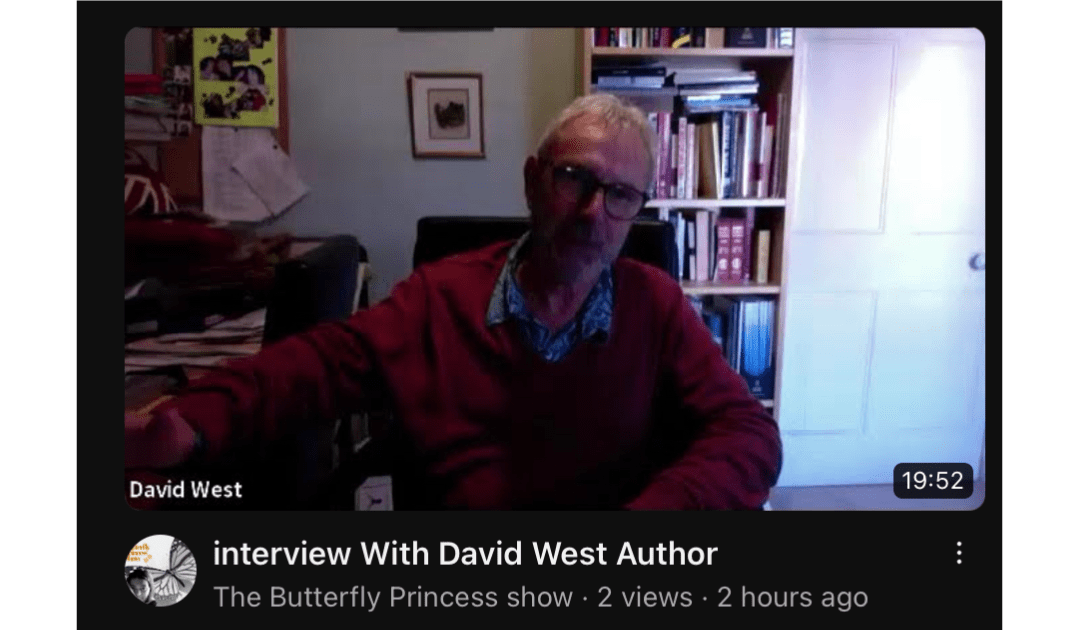Interview, Coaching, and Marathon
In my last post I mentioned my interview on The Butterfly Princess Show, the CWA best practice coaching session on selling conversations, and the Milktown Writers circle meeting.
Ruth Ware was the guest for the CWA interview. Ruth is the best selling author of: In a Dark Dark Wood, The Woman in Cabin 10, and Zero Days, to name but three. She started her career in the publishing industry before becoming an author. My takeaway from her interview was that in the era of mobile phones people have no reason to be bored. Readers need a reason to turn the page, otherwise they’ll put the book down and check their social media. Every recto has to have something like, “that was the fourth time I’d lied to the police that day.” That’s how to make the reader read on.
My interview with Steph Marie for her The Butterfly Princess Show went quite well. I think that’s the third interview I’ve done, and it definitely gets a little less terrifying each time. My first interview was a radio interview for NBC, then I was on the P English Literature show.
Milktown Writers go from strength to strength. My poem on Marathon went down better than expected and the prompt for next month is Short Fuse. I’ve got my piece written already. I’ll close with my Marathon poem, but can’t figure out how to do line breaks without making each line a paragraph. You’ll have to figure it out yourselves. Full stops are line-breaks.
The Marathon Question
Marathon’s not about the run, nor an ancient chocolate snack. I’ll tell you the whole story, strap in we’re flying millennia back. The people of Athens awoke, and exiled their tyrant Hippias. He fled to Persia, and there struck a deal with their king, Darius. Athens aided Ionian Revolt against the Persian rule. With his knowledge of Athens, their tyrant could be a most useful tool.
Darius dispatched his General Datis, with six hundred triremes. A hundred and thirty thousand men, boats bursting at the seams. They landed in a bay near Marathon, it did not go unseen. Pheidippides was dispatched to Sparta, salvation that might mean. The Spartans they were celebrating, their festival of the full moon. They’d be very happy to help, finish their feast, and be along soon.
Militades was the Greek general, leader of ten thousand men. You can do the numbers, thirteen to one, just a question of when. Militades strengthened his flanks with men from his centre, he’s the bait. Datis knew about Sparta and their full moon, he saw no need to wait. The might of Persia charged at Militades, somehow their line they held. Then the Athenian flanks piled in, and the Persian forces were felled.
Pheidippides was there, he’d run to Marathon with the Spartan’s news. Militades knew he was on his own, while the Spartans were on the booze. Which battle is important to you? Hastings, Trafalgar, Waterloo? May I suggest Marathon? It’s legacy affects both me and you.Athens was the cradle of both philosophy and democracy. Without the great Militades would we have a constituency?

